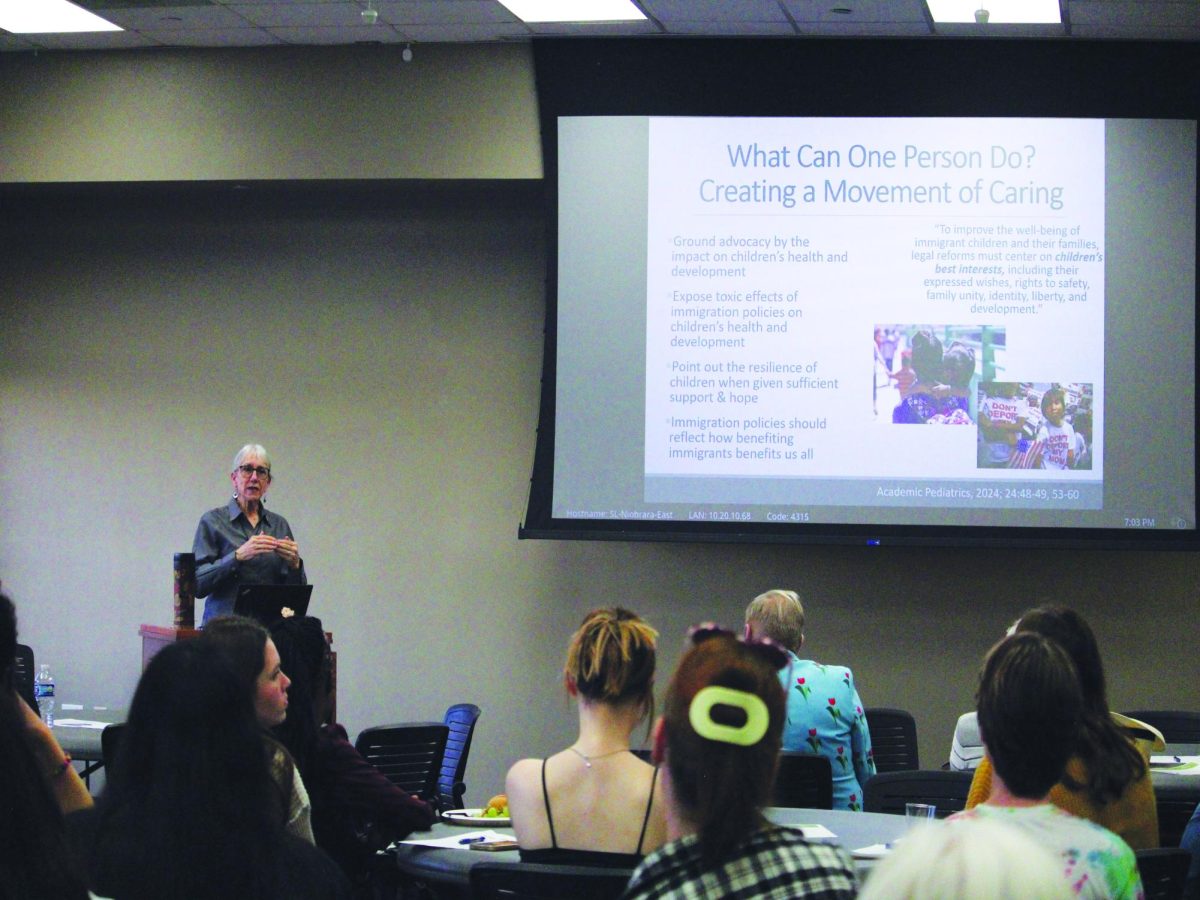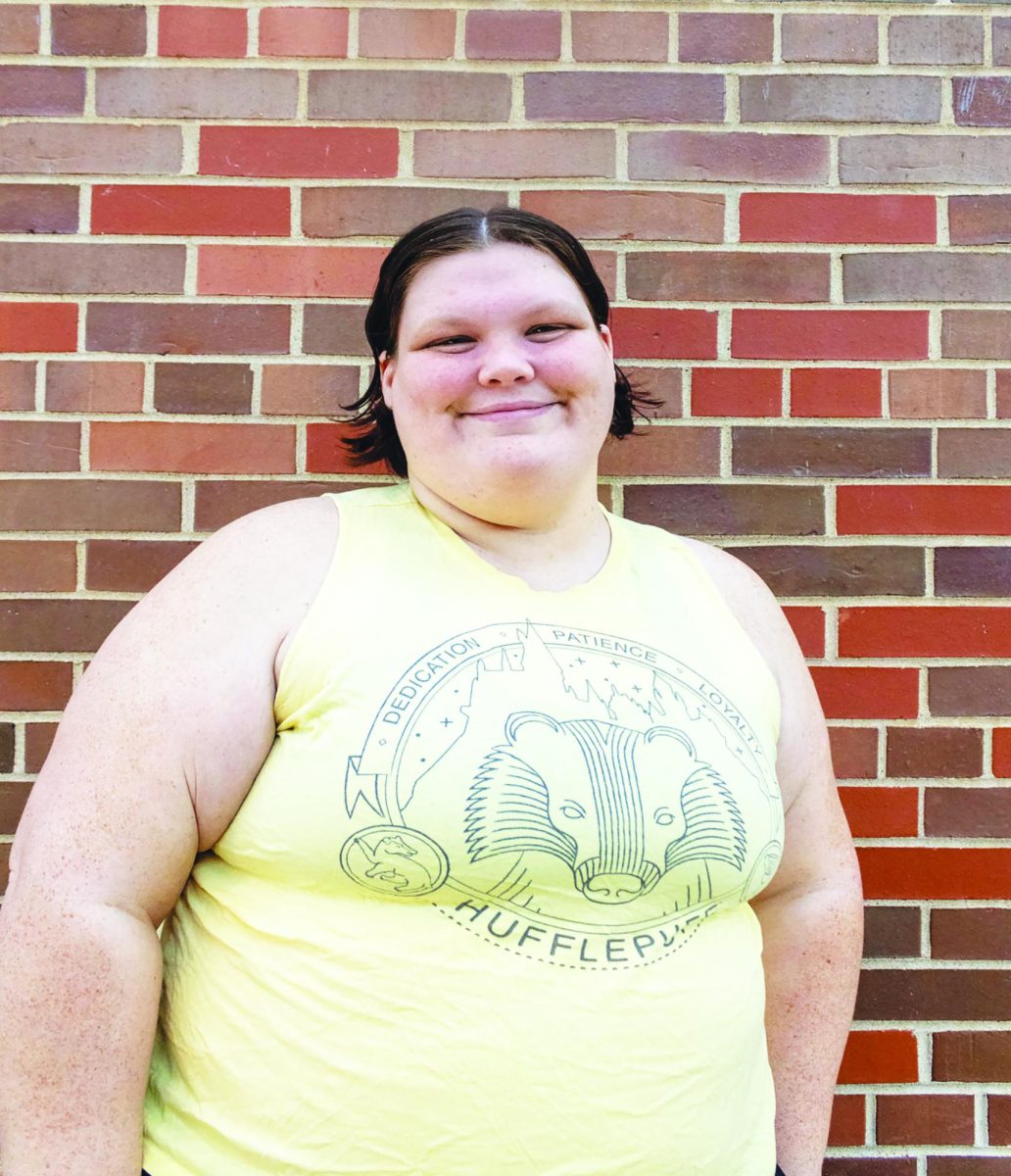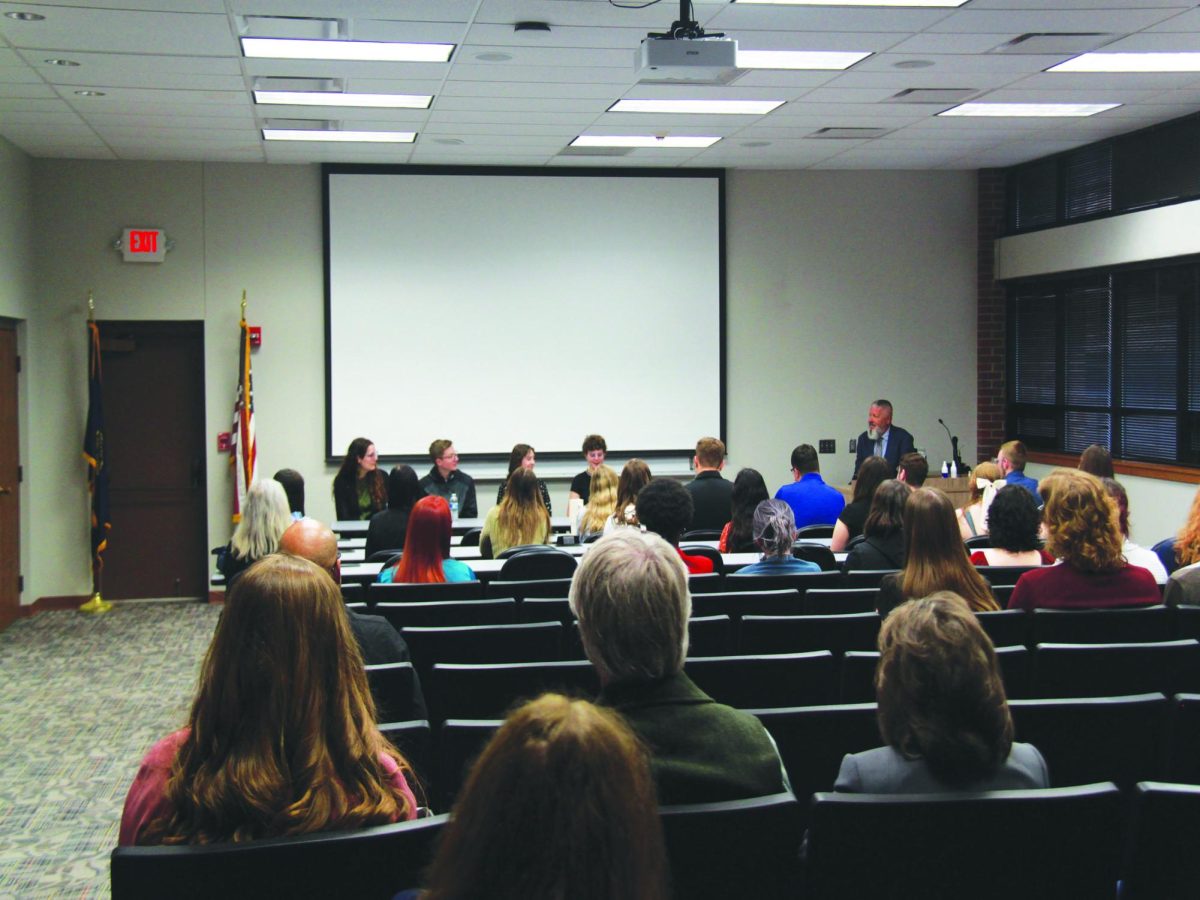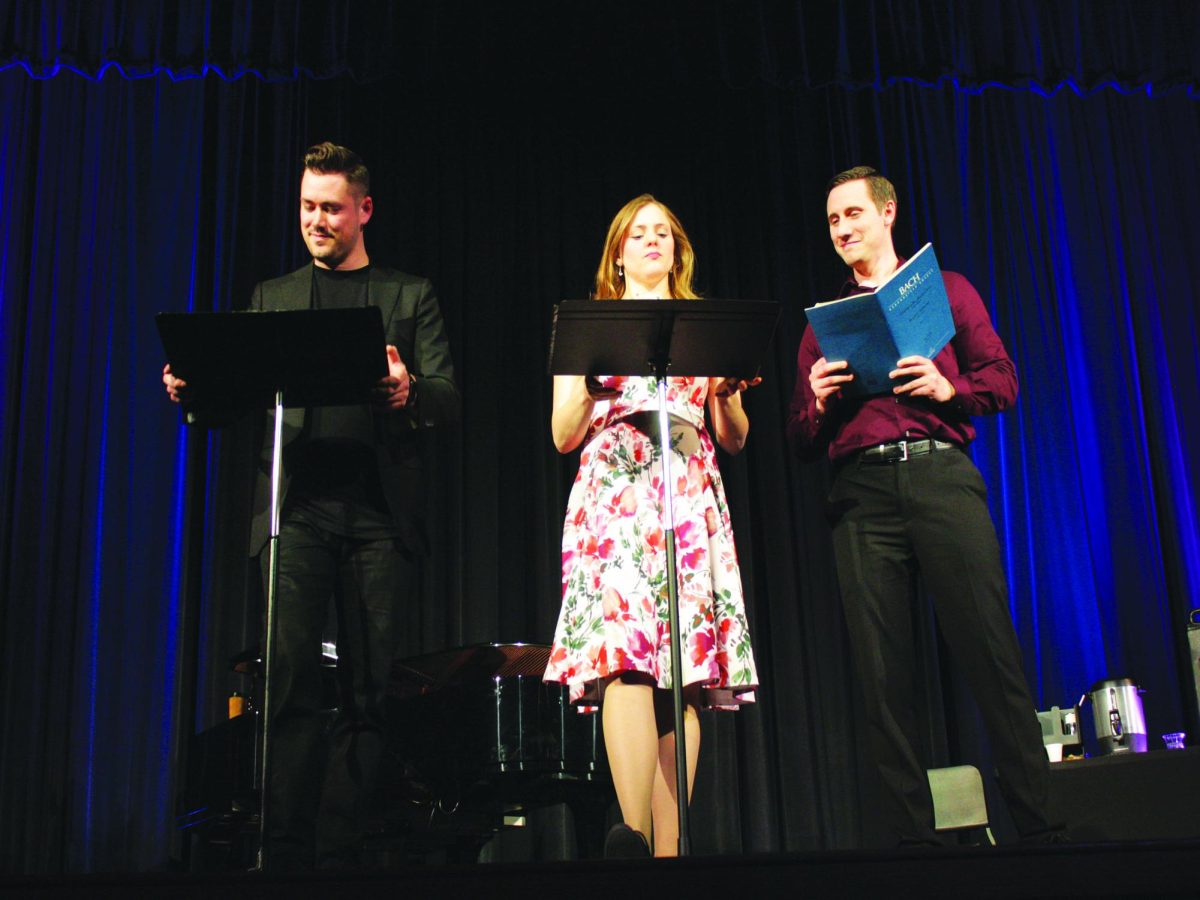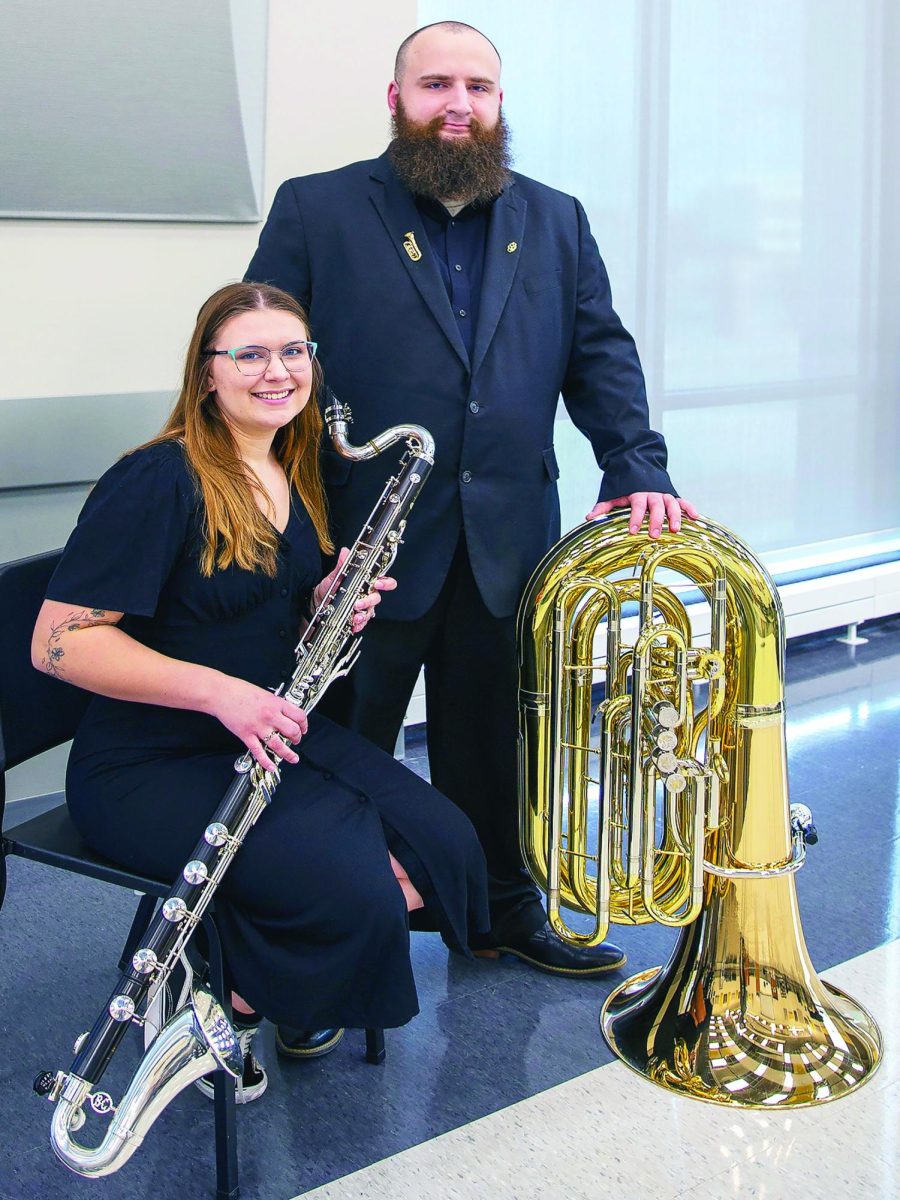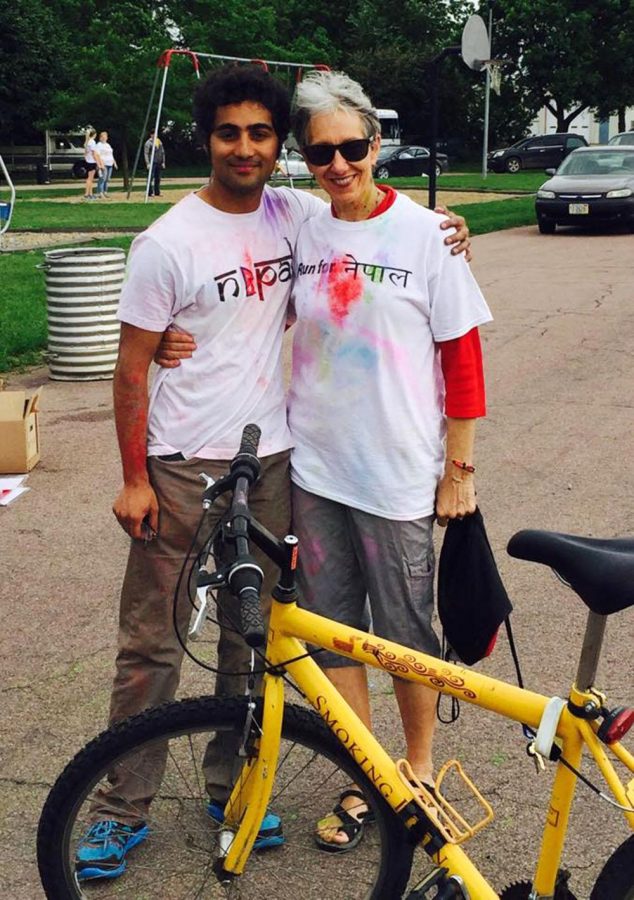Helping others around the world
(Left) Bipul Pokhrel and (right) Dr. Barbara Engebretsen after the run for Nepal on June 6 at Victor park in Wayne.
October 7, 2015
On April 25, an earthquake measuring about 7.8 on the Richter scale rocked Nepal, collapsing buildings and triggering landslides in the affected region, killing or injuring over 32,000 people. Organizations around the world sprang into action in order to bring relief to the devastated region.
Wayne State College was no different in this respect, as students and faculty hosted a fundraising drive and a color run in order to raise money for the relief efforts. These were coordinated by Dr. Barbara Engebretsen, WSC alumni Bipul Pokhrel and Dipendra Pokhrel.
One of the biggest challenges facing any kind of international charity is how to help. “People want to know who to donate to and whether they can be trusted,” Engebretsen said.
Luckily, a connection was able to be made between Norfolk-based charity Orphan Grain Train and the Nepal-based Children’s Hospital for Eye Ear and Rehabilitation Services (CHEERS) to provide one such reliable donation point. CHEERS is tied to the World Health Organization, and is one of the institutions in the country certain to get the money to where it will help those who need it.
These two organizations had been put in touch with each other by Engebretsen, who had spent time in both Nepal and Ethiopia interested in studying non-communicable diseases and establishing international service-learning exchanges for WSC students and staff. She plans on returning to this work in May 2016 and the next three years and hopes to be able to bring students to participate after 2017.
“It’s not for everybody, but working with partners in developing countries changes the way you look at things,” Engebretsen said.
The color run and associate fundraising drive were huge successes. By itself, the run raised $1,400. Other donations brought that total up to $4,000. This money was held in an account set up by Sandy Bartling at the Providence Medical Foundation until it could be transferred to CHEERS early last week.
Along with the money, Orphan Grain Train supplied 520 boxes of Mercy Meals, which totals up to roughly 30,000 meals worth of pre-packed dry food.
Between outside donations and the equipment laid up in storage, nearly 1,000 boxes of medical equipment were included with the shipment. Among the things donated were hospital beds, intravenous (IV) therapy equipment, ECG machines, four solar ovens and a hand-powered all-terrain vehicle designed for paraplegics.
One of the most time-consuming parts of processing the donations was when everything with an expiration date had to be checked, since customs would reject anything that would expire before July 2016. Upon completion, the supplies were packed into a forty-foot-long shipping container (your typical semi-truck box) and sent on their way.
The container is expected to be in Calcutta by Oct. 24 and should reach the city of Birgunj, Nepal, by early November. Due to the somewhat mercurial state of Nepalese politics at the moment, it is unclear as to when the donations will reach their intended destination as the borders are currently closed.
The largest issue facing the country, aside from recovering from the earthquake, is setting up a democratic government after the monarchy was overthrown in 2007. Most of the problems with getting aid into the country has to do with protestors against the current provisional constitution attempting to get their voices heard the only way they know how: starving the capital of supplies.
Engebretsen has faith that all will be well, though.
“The people from Nepal that I’ve worked with have been remarkable people, extraordinary people, and they represent the best of Nepal, and it is because of them that I think Nepal has a bright future.”

